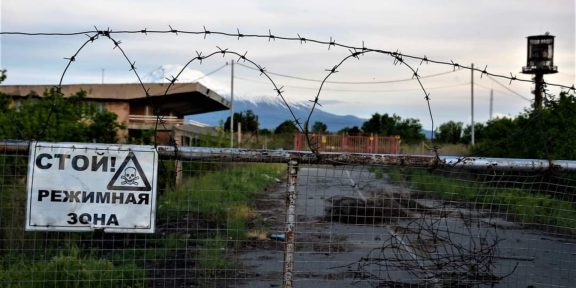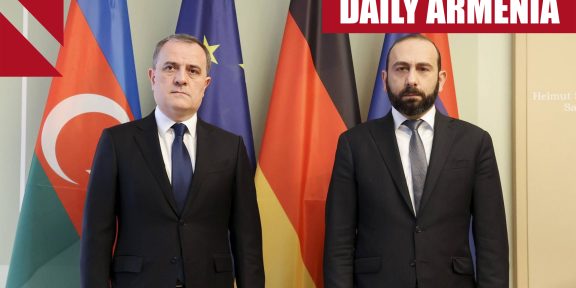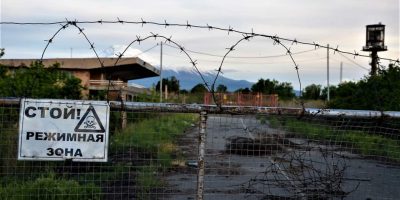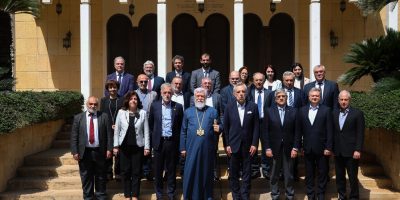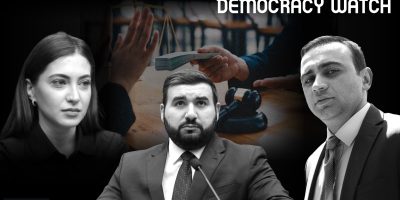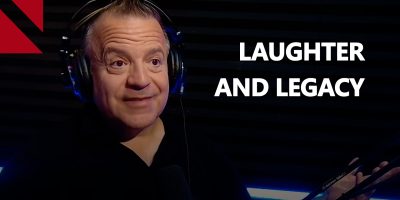During the Soviet era, Yerevan was known as the Pink City. Not only for the color of the stone used for building most of the public buildings, but also for being open and comparatively tolerant towards sexual minorities (at least in Soviet conditions). However, in one recent survey on tolerance towards homosexuality, Armenia ranked as the third worst place in Europe for sexual minorities. What does the life of the LGBT community in Armenia really look like?
We, the People of Komaigi Park
It is a dark Saturday night. The infamous Komaigi Park in the center of Yerevan. During the daytime, it is a favourite place to relax for locals as well as for tourists. It is also an area where the first Armenian football competition match took place. During the night-time, it is a place where homosexual and transsexuall sex workers gather. Because of their presence, the park is included in tourist guides about the nightlife. Because of these people, the park has earned the nickname Sex Park.
Seductive clothes, heavy make-up, long blonde hair. At first sight, it is not obvious that these people are male transsexual sex workers. Vika, a 27-year old medical student, is one of them. She has been earning money by providing sexual services for the past four years. She doesn’t stay in touch with her parents very much, they have no inkling about her nightly adventures. Sex with her costs 20,000 drams (about $40 US).
Prostitution means for her both a quick and easy profit and sexual enjoyment. The interview is suddenly interrupted by shouting and offensive language. A group of five young men, opposed to the presence of gays with a journalist, approach. They threaten with attack so we quickly run to a waiting taxi and leave. Vika doesn’t want to continue the interview, she is scared. Tigran, a gay sex worker, who joined us in the park talks instead. He was attacked together with his customer by another street gang. The attack was very brutal, he ended up in a hospital because he had bruised ribs. “When they saw us, they started to insult us at first, later they attacked us. We tried to run away. I know there was a soldier with them who had fought in Nagorno-Karabakh and who was a former policeman. One of the attackers told us that if we tried to report the incident to the police we wouldn’t succeed because his father worked in the general prosecution office,” Tigran says looking back on the dreadful experience.
The 43-year old man recalls the life of being a sexual minority in the Soviet Union. He realizes that the situation has somewhat improved in comparison with the dark past. “There was a section 116 [criminal code] which could send a man behind the bars for six months or even a year. That’s why it was essential to keep sexual orientation a secret. There is still no tolerance in Armenia, I hide my orientation from my parents for instance. I pretend that I haven’t found the ‘chosen one’ yet.” As a sex worker, Tigran changes his sexual partners often. He is aware of HIV risk but he neither protects himself nor does he undergo preventive screening. Unfortunately, there is no time for talking further and Tigran leaves for another customer. A remark of his stuck in my mind: Armenia is not safe for gays in the night.
Pink Armenia
A panel built dormitory next to the Yerevan city center. A locked metal gate and operating camera system. That’s time for cautiousness – we are waiting in front of the office of Pink Armenia. This NGO established in 2007, represents the voice of the Armenian LGBT community and over the past several years, its activists have faced countless threats. Until 2003, being in a homosexual relationship in Armenia was illegal according to the country’s criminal code. A key paragraph was removed due to the pressure by Council of Europe authorities. Mamikon Hovsepyan, one of the founders of Pink Armenia and current executive director outlines the main problems of the local LGBT community.
“There are problems almost in all spheres, if we just start with the family as the first circle – LGBT people are scared to come out so they prefer to hide their real sexual interests and they are often forced to marry. In case they do come out, they often face domestic violent, or they have to leave their families. Homosexuality is still taboo in Armenia, there is lack of sexual education – according to our schools people don’t have sexuality at all…..So when the students don’t have knowledge of what it is, they perceive LGBT people as some devils with six heads, eight legs etc….The other issue is media exposure of this problem. Media in Armenia is not independent…You can trust just Internet media sources, but these sources reach only a small portion of the population….people don’t have enough relevant information about our community,” sums up Mamikon
Despite all these problems is here also space for certain optimism. “If I compare now with the last ten years, there is some visible improvement. Nowadays many more people are brave enough to come out about their sexuality, more NGOs are interested in humans right of LGBT, the awareness about our community has significantly increased….but on the other hand we cannot compare our situation to Europe …we tried to organize just a small event about….but there were many more opponents than supporters, so the police had to protect us.”
Diana
Diana, a charming IT student, started to think about her sexual orientation when she was 14. That time she realized that she is much more interested in girls than in boys. A year later, she had her first relationship with a woman. About that time, Diana’s mother found out. “My mum once read messages between me and my girlfriend. She realised immediately that we are not regular friends. She kicked up a fuss. She told me that I was possessed by the devil, that I was diseased, so I left home for a few days. When I returned, we finally talked a while in peace. She was still shocked,t she told that she couldn’t understand, but it is important that I am happy.” The other family members recently found out about her sexual orientation and according to Diana, they have been accepting. Some of her friends also dealt with this fact with difficulty. “A friend of mine, a young girl, blamed me for being abnormal, that I was supposed to undergo treatment. However, the others accept me as I am, even though they needed to get used to it for some time. When I was at university, bits of gossip started to go around that I am a lesbian. I knew who spread them so I paid him a visit and said that I am interested in women but it is my own business.”
Diana faced bullying and psychological attacks because of her orientation. “One day, me and my girlfriend were strolling in a forest when we noticed that a group of guys were watching us. They began to call us names so we ran away,” she explains. Diana also contended with many difficulties in her job. “My boss was a very conservative man. He visited me every half an hour and told me that I had to be normal – which meant to love a boy, have a family, raise children… It was extremely unpleasant but it became a routine later.”
At the beginning, she tried to hide her different orientation, but later she realized she actually denied herself, her identity, her sexuality. Yet she does not refuse relationships with men. She dated girls as well as boys, and therefore she can compare: “There is a totally different energy, different drive in it. For example, I cannot love two girls at the same time because both of them have the same energy. As a result, I feel I have to take care about them. However, when I live with a man and a woman together, their energy is different. They equalize each other. But especially men want me for themselves and they don’t want to ‘share’ me.”
Besides studying at university, Diana also volunteers at Pink Armenia. “It is a space where I can freely meet people, who face similar situations and it is also a space for me to make use of my skills and to try to raise public awareness about our community.”
She is unsure about her future plans: “Armenian society is not tolerant, but I love my country. Maybe, I will travel abroad but I will return gladly. I would like to have children some day and to live with someone I love.”
Sevak – Sofia
Many gays in Armenia strive to hide their orientation because they are afraid of the reactions from the people they know. Sevak, who is also known as a girl called Sofia, has chosen a very different way. He tries to raise public awareness about the LGBT community in Armenia. He is an active blogger. He became known for his appearance in a TV game show X Factor. Nevertheless, his coming out wasn’t simple: “When I was a teenager, I realized a conflict between what I was supposed to feel and what I did feel. I was confused; I couldn’t cope with it for a long time. We almost never spoke about sexuality or gays in our family. If so, it was only about the bad and odd people. When my father found out that I am gay, he was very disappointed.”
Therefore, Sevak had to be on his own, his family didn’t understand.. However, the situation changed later. “My father called me about a year after and he told me that if I was to be happy I was supposed to live in a country which is kinder to gays, for instance the Netherlands. Eventually, our relationship improved. We don’t talk about our sexuality, but we live together.”
Sevak describes himself as 70 percent male and 30 percent female. That’s why he uses a girl’s name, Sofia besides his boy name Sevak. His radical approach earned him many enemies but he stands firm. When his thesis concerning homosexuality was refused, he decided to leave school. “The thesis supervisor told me that I was non-objective about the theme because I am gay. I considered it totally absurd so I threw school to the winds.”
Sevak participates in Pink Armenia along with Diana. He perceives the organization as an important platform for raising public awareness about the life of sexual minorities. According to this activist, knowledge is just what Armenians lack the most. “Many people still perceive gays and lesbians as something impure, as diseased and perverted people. That opinion is caused simply because of the lack of information. Sexual education is not taught in schools, many topics are considered as taboo, so it must be changed,” Sevak says. He also seeks inspiration abroad. Next year, he is going to join in a volunteer project in France, which is focused on sexual minorities. Will he return or stay in a country which, according to his father, is kinder to gays? He does not know yet.
I Say No
Tigran Kocharyan, a blogger and critic of the local LGBT community. During an interview at a café, he explains that he does not mind homosexual relationships: “If somebody loves a same-sex person, I don’t care, it is their own business. I have many friends among the homosexuals. The propaganda related to it annoys me. For many of them, it is just a good business, a possibility to gain money from abroad but not to do anything worthwhile. Sometimes, they are not even homosexuals. It is actually a well profiting hypocrisy for the public,” he explains. Mr Kocharyan, offers one more interesting explanation: “I think it’s something psychological. I don’t consider them as ill people, I really don’t, but it is influenced by upbringing. A masculine element is not present many times or they are neglected by their parents.” He has a very clear answer for a question about what he would do if his son was gay: “I do hope this will never happen because it would be especially my problem, because I would have failed as a parent, because I neglected him. But as I say, I hope this will never happen.”
And what do the residents of Yerevan think about the LGBT community? A short survey on the streets is telling:
Artur, 30: “In my opinion, the homosexuals are not good people, we just don’t want them in our city. I rather avoid them.”
Vahan, 40: “I think I am a very tolerant man. I lived abroad for a long time. I don’t mind homosexuals. Our society is very conservative but not accepting gays is present in other countries as well. What if my child came to tell me he is gay? I can’t imagine that.”
Jean, 63: “They are not bad people, but it’s against nature and against God. The family is a man and a woman.”
Arsen, 67: “Having a gay child? Hanging myself should be better.”
Nada, 43: “Pardon me, I don’t care about this matter and I think it has nothing to do with tolerance. We have much more important problems. Why don’t you visit a children’s home and ask them about their life?”
In Place of a Conclusion — My Oasis
An inconspicuous building in the city center. You can find many similar ones in European cities. But in an Armenian context it is still a rarity. Just several months ago, a gay bar opened. It is now around midnight and it is half-empty, but people are still coming. The bouncer at the entrance controls all visitors. If you are not familiar with other guests, you are not allowed in. They all remember the fate of the DIY bar, a favorite meeting point for Yerevan’s LGBT community. After many threats, this bar was fire-bombed and the owner had to leave Armenia. But current visitors don’t concede any risks. One of them is Armen. “For me it’s just a place, where I can put all my problems on the back burner, and just have fun with my friends, without any threats and problems. You know, it’s just like an oasis.“
Martin Ocknecht





